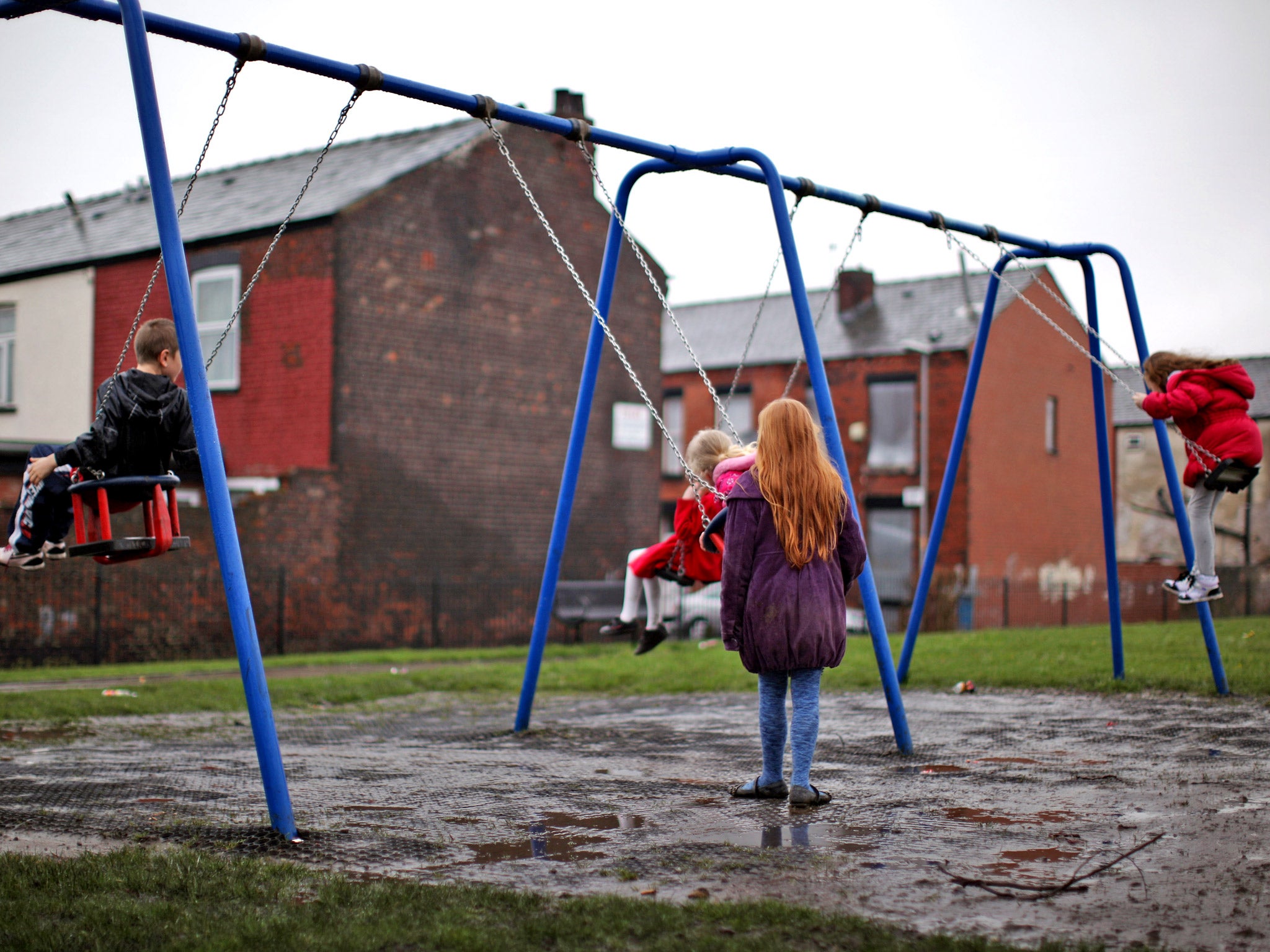Vulnerable children ‘damaged’ by government spending cuts
‘The government has deliberately levelled down support for children and families over the last ten years’ says children’s charity

Your support helps us to tell the story
From reproductive rights to climate change to Big Tech, The Independent is on the ground when the story is developing. Whether it's investigating the financials of Elon Musk's pro-Trump PAC or producing our latest documentary, 'The A Word', which shines a light on the American women fighting for reproductive rights, we know how important it is to parse out the facts from the messaging.
At such a critical moment in US history, we need reporters on the ground. Your donation allows us to keep sending journalists to speak to both sides of the story.
The Independent is trusted by Americans across the entire political spectrum. And unlike many other quality news outlets, we choose not to lock Americans out of our reporting and analysis with paywalls. We believe quality journalism should be available to everyone, paid for by those who can afford it.
Your support makes all the difference.Poorest children in the country have been “damaged” by government spending cuts, a parliamentary inquiry has warned.
A lack funding and cuts to early years and youth support services by local councils is leaving children at risk of “serious harm” a report by the House of Lords Public Service Committee has found.
Spending on these vital services has fallen more in areas where the poorest children live, compared to those in wealthier areas. In places such as Walsall, which has some of the highest poverty levels in the country, spending decreased by 80 per cent decrease between 2010 and 2019, while areas such as Surrey only saw a 10 per cent drop.
It warned the government’s recent spending pledge of £494 million for early year services will not be enough to repair the “creaking public services infrastructure of children’s services”, following cuts equaling £1.7 billion a year for the last decade.
A poll, detailed in the report, of almost 200 professionals found half reported a rise in the number of children and families requesting help with mental ill health, domestic violence and addiction problems.
Witnesses speaking to the inquiry said the number of vulnerable children who were “invisible” to health and care services had likely increased during the pandemic.
This was in part due the fact children “had less opportunity to talk to or be noticed by trusted professionals because of the majority of children being out of school for a number of months and having less contact with their extended family and others”, the Royal College of Paediatrics and Child Health said.
Cuts to children’s services, the report said, had increased inequalities in the education of children from poorer backgrounds and that Covid-19 had exacerbated these inequalities.
Laurence Guinness, chief executive, The Childhood Trust: “The government has deliberately levelled down support for children and families over the last ten years and is cruelly failing our most vulnerable children in many of the most disadvantaged areas of the country.
It said it was a “moral outrage” that foodbanks, volunteers are working to keep children from “starving” and providing mental health and youth services to children who cannot get statutory support. This, he said, was because of long waiting lists or “budget cuts shuttered the services long ago.”
He added: “We can do better, and this report is a shameful reminder that a society reaps what it sows. We will all have to pay the price for the last decade of cuts and austerity.”
The inquiry committee criticised “siloed” working between schools, local councils and NHS mental health services, commenting that individual priorities had discouraged these public services from working together.
According to evidence, the NHS and local health organisations “too often fail to recognise that they share child safeguarding responsibilities with non-NHS partners.”
The committee has recommended the Government restore its funding of early years services to 2010 levels, adding that underinvestment which had led to worse outcomes for children had led to higher costs for tax payers.
It has also called for the government to publish a national strategy on child vulnerability and a multi-year funding plan.
Baroness Hilary Armstrong, chair of the committee, said: “We face a crisis in child vulnerability which needs urgent action.
“Too often public services can’t help children before it’s too late. Too many children fall through the gaps, go into care, are excluded from school or end up in prison - all of which costs the public purse more in the long run.”
She said the committee was pleased the government is supporting some areas to developed family hubs but now must commit to rolling this out nationally, with priority given to the poorest areas.
Tulip Siddiq MP, Labour’s shadow minister for children and early years, responding to the report said it demonstrates how “a decade of conservative cuts to sure start and family services have had a devasting impact on the lives of vulnerable children.”
She said the “meagre” support for family hubs will not make up for the loss of more than one thousand children’s centres since 2010.
A spokesperson for the government said: “We’re prioritising the wellbeing and safety of children, which is why we announced significant additional investment in services for families at the spending review.
They said this included help for those facing challenges, investment in family hubs, and more than £28 million to domestic abuse organisations.
Join our commenting forum
Join thought-provoking conversations, follow other Independent readers and see their replies
Comments